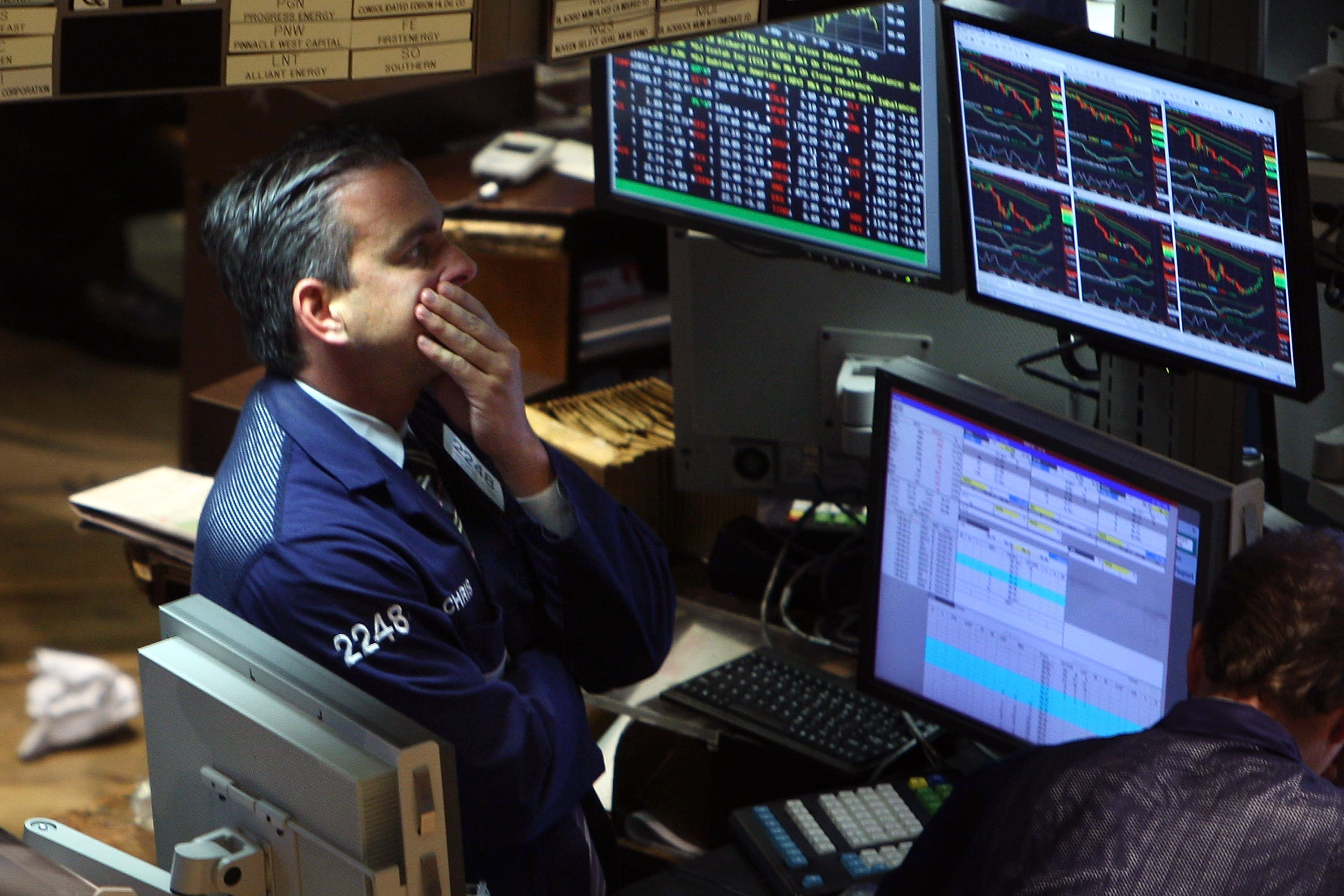The British pound sank to 30-year lows while most stock markets in Asia tumbled following Britain’s decision to leave the European Union. Traders fear there will be months of uncertainty.
The British pound sank to its lowest level in 30 years as trading opened in Asia Monday morning – the second business day after British voters opted to leave the European Union.
The pound was down to $1.3368 from its $1.3670 close in New York on Friday. Some analysts expect the currency to eventually level off somewhere between 1.20 and 1.25 against the dollar, others said it could fall lower.
The euro has also came under pressure, falling almost 1 percent against the dollar,
Traders in Asia were dumping the pound and buying comparatively safe assets such as the Japanese yen and gold.
Britain’s so-called ‘Brexit’ vote on Thursday wiped $2.1 trillion (€1.9 trillion)off market valuations on Friday.
“People are finding it difficult to comprehend what Brexit implies for the future – we don’t know yet what the magnitude of the shock will be,” Steven Barrow, head of Group-of-10 strategy at Standard Bank Group in London, told Bloomberg News.
Asian currencies also hit
Investors are also shifting out of other higher-yielding, riskier currencies, across Asia.
After getting hammered last week, the South Korea’s currency continued its slide, dropping fell 0.6 percent; the Australian dollar slipped 0.7 percent and the Indonesian rupiah shed 1.1 percent. Malaysia’s ringgit fell 0.8 percent and the Philippine peso lost 1 percent.
But Japan’s stock index, the Nikkei, was up 1.5 percent in mid-morning trade. The Tokyo-based index plunged nearly 8 percent on Friday.
But sentiment remained weak, and trading volatile.
“Things are so uncertain that investors still do not have a clear idea how much risk assets they need to sell,” said Hiroko Iwaki, senior foreign bond strategist at Mizuho Securities.
“But it is safe to assume investors are not yet with done all the selling they need to. I wouldn’t be surprised to see another 10 percent fall in share prices,” she added.
James Audiss, a senior investment adviser at Shaw and Partners in Sydney is also girding for more losses, across markets, this week.
“It’s going to be a very tough week,” he said. “Unless an investor has a really strong view one way or the other, you’d be brave to buy in. It will be a really volatile week and people are scared to position into things.”
Investors will be a keeping a close eye on Britain, as the country tries to come to terms with the ramifications of its referendum results.
bik/jm (Reuters, AFP)




